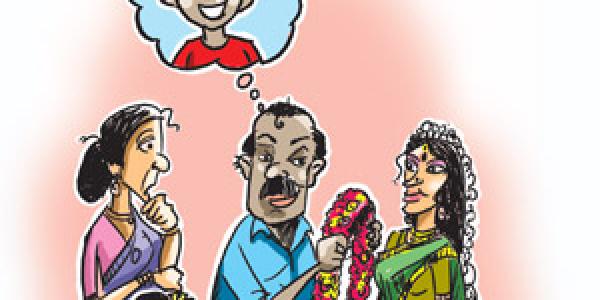Latest News
Sarla Mudgal &ors V. Union of India

Facts-
Four petitioners filed a separate petition in the Supreme Court under Article 32 of the Indian Constitution. The four petitions were heard together. In the First petition, there were two petitioners. Petitioner 1 was Sarla Mudgal, the president of a not-for-profit organization called Kalyani. This organization was working for the welfare of distressed women and the families which are in need. Another petitioner in the same petition was Meena Mathur. Petitioner 2 had married one Jitendra Mathur in 1978 and had three children. Meena Mathur found out that her husband had converted to Islam and was married to another woman named Sunita Narual alias Fathima. Petitioner 2 contended that the motive of conversion of her husband to Islam was only to facilitate more than one marriage, avoiding Section 494 Indian Penal Code (IPC).
Another petition was filed by Sunita Narual alias Fathima, in which she contended that the respondent Jitendra Mathur had married her and a child was born out the wedlock. And under the influence of petitioner 2, the respondent had given an undertaking that he will convert back to Hinduism and will maintain his first marriage. As the petitioner continues to be Muslim, she will not be maintained by her husband under no protection of personal laws.
The third petition filed by Geeta rani was also of a similar fact. The petitioner was married to Pradeep Kumar in 1988 under the Hindu Marriage Act, 1955. After 3 years of marriage, the respondent had converted to Islam and married another woman, Deepa. The petitioner contends that the sole purpose of conversion to Islam was to enable the second marriage.
In the fourth petition, Sushmita Ghosh married a G.C. Ghosh in 1984 according to Hindu Marriage Act, 1955. In 1992, the respondent asked her to agree to divorce by mutual consent as he does not want to live with her. The respondent also revealed that he was converted to Islam and desires to marry Vinita Gupta. In the writ petition, it was prayed that the respondent must be restrained from the second marriage.
Issues-
1. Whether a Hindu husband, married under Hindu law, by converting to Islam, can enter into a second marriage?
2. Whether such a marriage without having the first marriage dissolved under law, can be a valid marriage in the capacity of the first wife who continues to be Hindu?
3. Whether a recusant husband would be guilty of the offense under Section 494 of the IPC?
Judgment-
The court discussed all the issues in detail and laid down:
1. The court held that a marriage that takes place according to Hindu rites, certain rights, and status is adopted by both the parties. If one party is allowed to dissolve the marriage by converting and adopting a new personal law, it will destroy the existing rights of the spouse who does not covert. Under Hindu Marriage Act, 1955 the marriage can be dissolved only on the grounds given under Section 13 of the said Act. The second marriage by the recusant husband will therefore be illegal. The court held that the second marriage is violative of justice, equity, and good conscience.
2. Concerning the second issue, the court held that the recusant husband will be guilty under Section 494 of IPC. When a husband converts to Islam and marries again would not by itself dissolve the previous Hindu Marriage under the Act, but it can be a ground for divorce. The husband will be guilty under Section 494 and the marriage will be void.
3. The court lastly advocated the necessity of the Uniform Civil Code(UCC) in the Indian Legal system, which will stop individuals from trespassing the personal law for one’s benefit. The court directed the central government through the Ministry of Law, to file an affidavit regarding the steps taken towards securing a UCC for the citizens of India.
Conclusion.
The recognition of Bigamy or Polygamy can be dated to ancient times. It was practiced by Hindu kings and aristocrats. During the British era, the Privy Council held that a Hindu man cannot marry again without separating from his first wife. After Independence, the personal laws are codified and a ban was imposed on bigamy, except for Muslims. The Constitution of India gives the freedom to practice and professes any religion. But such freedoms can be misused as we realized by the above petitions. Bigamy is punishable for all religions under IPC, except the personal law which permits polygamy.
The Supreme Court in Sarla Mudgal & ors. V. Union of India settled the ambiguity surrounding the rights, duties, and obligations of people who exercises their freedom to change religion to defeat the law. The rule of change should be applied with primary principles, for the nation to move forward. Secular India should interpret that reforming the law to keep up with the change in society requires New India.
Document:



































































































